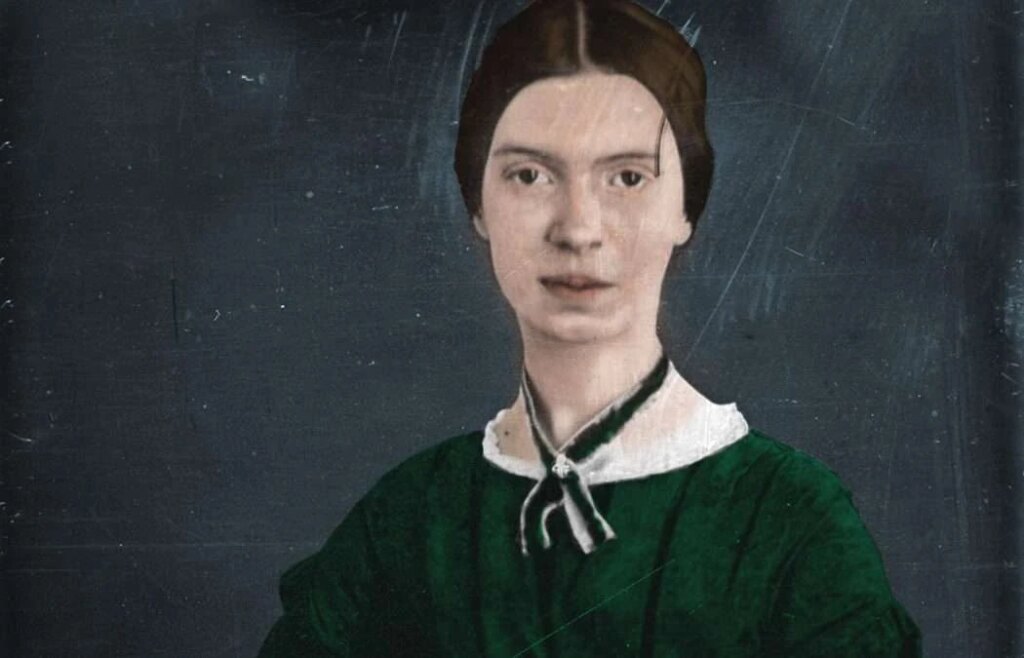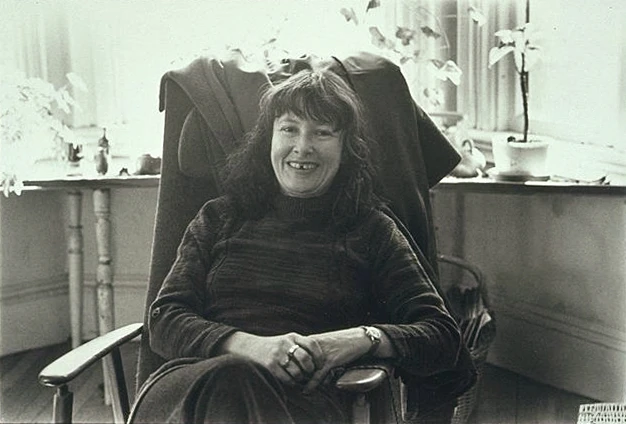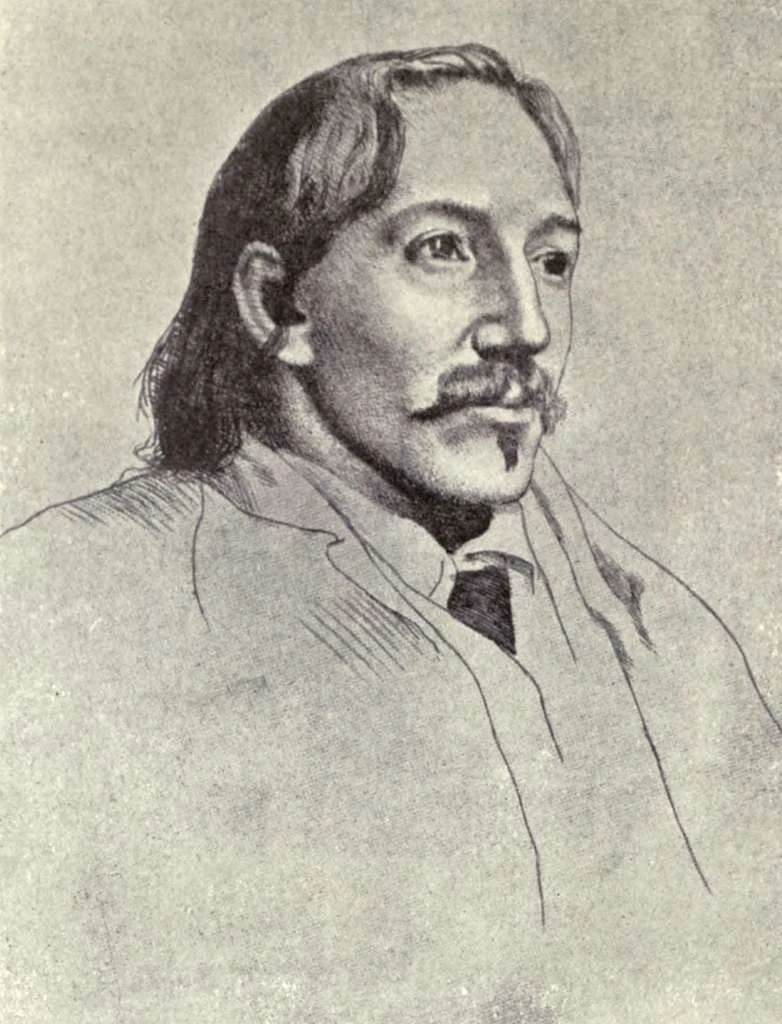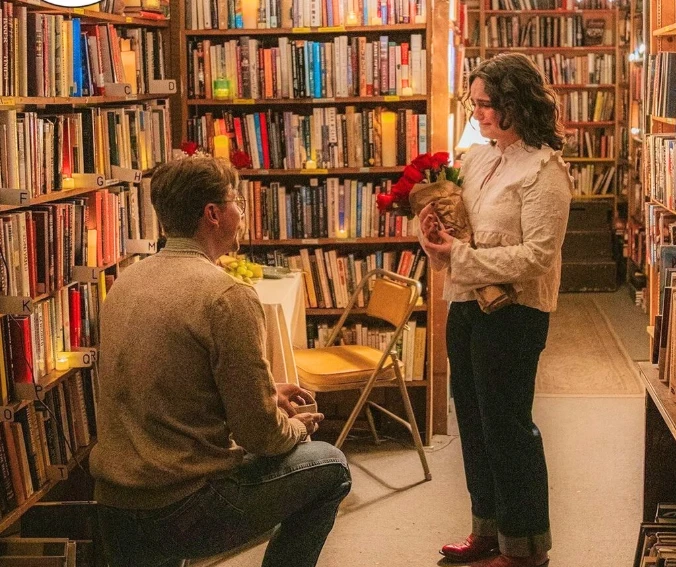Five poets explore the magic of books and literature through their work. Dive in and find yourself some reading inspiration, and maybe a new favorite poem.
There are many subjects that capture the imagination and creativity of poets. But perhaps there is one topic that unifies the poetic mind most of all – the topic of literature. Here are five poems that capture the magic of books and literature from different angles.
There is No Frigate Like a Book by Emily Dickinson
There is no Frigate like a Book
To take us Lands away,
Nor any Coursers like a Page
Of prancing Poetry –
This Traverse may the poorest take
Without oppress of Toll –
How frugal is the Chariot
That bears the Human soul –

There is an intensity to Emily Dickinson’s work, but there is a beauty too. We can find both in this poem, as the poet engages with the power of books. Books can, after all, transport us to new lands more effectively than any other type of vehicle.
There Is a Land by Leland B. Jacobs
There is a land –
A marvelous land –
Where trolls and giants dwell;
Where witches
With their bitter brew
Can cast a magic spell;
Where mermaids sing,
Where carpets fly,
Where, in the midst of night,
Brownies dance
To cricket tunes;
And ghosts, all shivery and white,
Prowl and moan.
There is a land
Of magic folks and deeds,
And anyone
Can visit there
Who reads and reads and reads.

In There is a Land, Leland B. Jacobs explores similar ground to Emily Dickinson. Only, rather than a mode of transport, Jacobs is talking about the land itself, the very terrain upon which the reader treads.
The melding of fantasy and accessibility makes this poem truly special. Jacobs describes flying carpets and mermaids, and ghosts and giants, and then, right at the end, opens the door to us all.
The Secret by Denise Levertov
Two girls discover
the secret of life
in a sudden line of
poetry.
I who don’t know the
secret wrote
the line. They
told me
(through a third person)
they had found it
but not what it was
not even
what line it was. No doubt
by now, more than a week
later, they have forgotten
the secret,
the line, the name of
the poem. I love them
for finding what
I can’t find,
and for loving me
for the line I wrote,
and for forgetting it
so that
a thousand times, till death
finds them, they may
discover it again, in other
lines
in other
happenings.
And for
wanting to know it,
for
assuming there is
such a secret, yes,
for that
most of all.

When Denise Levertov writes about “a secret,” she’s writing about something universal. There is a secret contained in all books and in the act of reading. It’s a secret that can sustain us throughout our whole lives, as we gain a more profound understanding of the world around us with every line we lead.
But there’s even more to Levertov’s wonderful poem than this. “No doubt/ by now, more than a week/ later, they have forgotten/ the secret,” she writes. And then, “a thousand times, till death/ finds them, they may/ discover it again, in other/ lines.”
With this, Levertov captures the transient, yet transformative, nature of reading and literature.
Book-Lover by Ralph Bergengren
My Pop is always buying books;
So that Mom says his study looks
Just like an old book store.
The book shelves are so full and tall
They hide the paper on the wall,
And there are books just everywhere,
On table, window seat, and chair,
And books right on the floor.
And every little while he buys
More books, and brings them home and tries
To find a place where they will fit,
And has an awful time of it.
Once when I asked him why he got
So many books, he said, “Why not?”
I’ve puzzled over that a lot.

Ralph Bergengren’s work was characterized by a smart, gentle, sly wit. And we can see this wit represented here, in the poet’s examination of an age-old problem – just what do we do about all those books?
Well, these days, just like we did in Bergengren’s time, and in times before, we pile them up. We surround ourselves with books that “hide the paper on the wall”… “on the table, window seat, and chair.”
And maybe, if we’re lucky, we might even get the chance to read them.
Picture-Books in Winter by Robert Louis Stevenson
Summer fading, winter comes—
Frosty mornings, tingling thumbs,
Window robins, winter rooks,
And the picture story-books.
Water now is turned to stone
Nurse and I can walk upon;
Still we find the flowing brooks
In the picture story-books.
All the pretty things put by,
Wait upon the children’s eye,
Sheep and shepherds, trees and crooks,
In the picture story-books.
We may see how all things are,
Seas and cities, near and far,
And the flying fairies’ looks,
In the picture story-books.
How am I to sing your praise,
Happy chimney-corner days,
Sitting safe in nursery nooks,
Reading picture story-books?

Here, the Treasure Island novelist presents us with memories that will be familiar to many – the memory of youth, of changing seasons, and a measured retreat into the world of books and literature.
As we grow older, and hopefully wiser, those same pleasures remain. When the weather just gets too inhospitable, books can be our saviors.
A Rich Treasure Trove of Poetry

Choosing only five poems about books and literature is an almost impossible task. There are countless other examples that I’ve missed, and I’ve probably overlooked some of your favorites too. This is such a rich area of subject matter for poets, and there is simply so much to be said on the topic of book literature – I’ve no doubt there will be plenty more great works in this area in the future.
Join our community of 1.5M readers
Like this story? You'll love our free weekly magazine.








